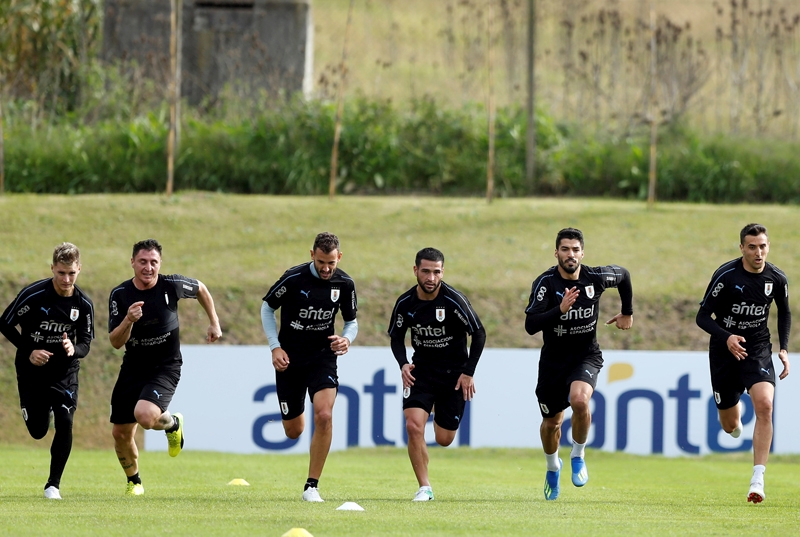You are viewing 1 of your 1 free articles. For unlimited access take a risk-free trial
Keto diets for performance: the verdict is in

How beneficial really is a keto diet for athletes in training and competition? SPB looks at brand new research that provides some definitive answers
In recent years, the use of ‘ketogenic’ diets (often termed keto diets) has become increasingly popular. Initially used mainly as a weight-loss strategy and in certain medical interventions, the use of keto diets has spread to the field of sport performance, where some athletes claim huge benefits. However, while there’s good evidence that a keto diet can provide weight loss and health benefits in populations suffering from obesity-related certain medical conditions(1), there’s a good deal of controversy about its role in relation to athletic performance.
What is a ‘keto’ diet?
Although there are a number of variations, a ketogenic diet at its core consists of an almost zero-carbohydrate, high-fat diet – something very different from the traditionally recommended diet. Keto diets involve drastically reducing carbohydrate intake, and replacing it with fat. The near elimination of carbohydrate puts the body into a metabolic state called ‘ketosis’. The rationale is that this altered metabolic state forces the body to become very efficient at burning fat for energy. The high percentage of fat intake and low carbohydrate also promotes the formation of natural substances called ketones in the liver, which lowers blood sugar levels, in turn placing less stress on the insulin system, explaining the health benefits observed in some individuals with certain medical conditions.The standard ketogenic diet is a very low-carbohydrate, moderate-protein and high-fat diet. It typically contains around 75% fat, 20% protei n and only 5% carbohydrate (see figure 1). This is in stark contrast to a normal ‘ample-carbohydrate, lowish fat diet’ (the type traditionally recommended for endurance athletes), which may typically comprise of 25% fat, 55% carbohydrate and 20% protein(2).
There are also other modified variants of the keto diet, which are perhaps easier and more practical to live with. These include the ‘cyclical ketogenic diet’, which involves periods of higher-carbohydrate feeding (for example five days consuming a keto diet followed by two days of higher carbohydrate intake). There’s also the ‘targeted ketogenic diet’, which allows you to consume higher intakes of carbohydrate before or after specific training session. However, there’s relatively little research on these variants.
Figure 1: Keto diet (top) vs. ample-carbohydrate diet (bottom)

Keto diet

Ample-carbohydrate diet
Note how the protein intake of a keto diet is similar to an ample-carbohydrate diet. However, the carbohydrate intake is severely curtailed and replaced with fat instead, which then makes up the bulk of the diet.
Keto diets for sport
The use of keto diets in sport is a topic of controversy, with studies showing conflicting results, especially when it comes to performance. Some research has shown that keto diets can actually lead to worse performance, even when athletes switch back to a normal diet before competition(3-5). This may occur because energy production pathways used during intense exercise become down-regulated after a period of low-carbohydrate intake. Meanwhile, other studies have found small positive effects or, at least, no detrimental effects(6-10).One benefit of keto diets that may be less contentious is their use for body fat reduction and improved power-to-weight ratio in team players during the off season, or in quieter periods where no matches aer scheduled. In a recent article on soccer performance, SPB looked at some research published last year showing that the off-season use of keto-diets enabled the players to lose fat mass without any detrimental effects on strength, power and muscle mass(11). Just to reiterate however, the athletes in this study were only undergoing light training and had no competitive matches scheduled during the study period. The researchers were therefore unable to comment on whether a keto diet would have resulted in benefits during a competitive phase of the season.
Unpicking the confusion
The benefits or otherwise of keto diets for athletes is a somewhat confused picture, not helped by the fact that different studies to date have used different populations (eg untrained, trained and elite) diet durations and focussed on different outcomes (eg body composition, endurance performance, strength/power etc). What is really needed is a study that pulls all the data together on keto diets for sports performance, sifts it and comes up with evidence-based recommendations.Now, in a brand new study, a team of Brazilian scientists has just done just this(12). Published last month in the journal ‘Critical Reviews in Food Science and Nutrition’, the scientists carried out a systematic review with meta-analysis (ie where all the data on a topic is pooled and analyzed as a whole) on the use of keto diets in athletes and highly trained individuals. In particular, this new research compared the use of keto diets vs. conventional carbohydrate-rich diets on a) physical performance and b) body composition in trained individuals.
In this study, the researchers trawled all the scientific databases of the literature and gathered together all the controlled trials on keto-diet interventions in athletes and in well trained adults. Of these, 18 studies met the criteria for inclusion, which involved assessing the impact of keto diets on the following outcomes:
- Endurance cycling performance
- Strength performance (measured by 1-rep max)
- Total body mass
- Total body fat
- Lean (fat-free) body mass
What they found
They key findings were as follows:- For endurance performance, time trial results were superior when a carbohydrate-rich diet was followed compared to a keto diet.
- When it came to strength and 1-rep max scores, a carbohydrate-rich diet was once again found to produce superior results compared to a keto diet.
- The effects of a keto diet on body composition were favorable for athletes seeking weight loss; athletes following a keto diet lost more weight overall and more fat mass on a keto diet compared to a carbohydrate-rich diet.
- When it came to maintaining or developing fat-free muscle mass, here a carbohydrate-rich diet was deemed superior as keto diets seemed to produce small amounts of lean muscle mass loss compared to carbohydrate-rich diets.
Practical implications for athletes
The first thing to say is that a peer-reviewed meta-analysis study provides one of the most robust forms of evidence in science, so we can be confident these findings are relevant to athletes who might be pondering whether to experiment with a keto diet. The main conclusion is that where athletic performance in the short-term is important, it seems that keto diets do NOT enhance endurance or strength performance – indeed, they appear to harm performance. Another drawback is that lean muscle mass retention/gain was found to be slightly less on a keto diet than on a high-carbohydrate diet. This could be relevant for athletes returning to sport after injury where a need to build muscle mass and resilience has been identified.However, there may distinct positives of a keto diet for athletes when it comes to weight loss or weight maintenance. The evidence strongly suggests that a keto diet enhances fat and total body mass compared to a carbohydrate-rich diet. This could be particularly relevant for athletes who need to lose or control weight during the off season for example. By following a period keto diet during the off season, athletes could get a head start the next season, without the need to for pre-season training.
Another potential scenario where a keto diet could be advantageous is where an athlete needs to improve his-her power-to-weight ratio (see this article). A short period of keto eating early in the season (well before the competitive phase) may allow an athlete to shed excess pounds more easily and improve power-to-weight. He/she could then switch to a high-carbohydrate diet for the training period in the weeks before an important event.
The important take-home message from this research however is that keto diets are not a ‘one size fits all’ strategy to be used all the time. Athletes who do are likely to be disappointed with their performance. By contrast, a carefully targeted and judicious use of keto eating could produce performance gains down the line!
References
- Obes Facts. 2021;14(2):222-245
- J Am Diet Assoc. 2000 Dec;100(12):1543-56
- 2017 May 1; 595(9):2785-2807
- Med Sci Sports Exerc. 2019 Oct; 51(10):2135-2146
- Exerc Sport Sci Rev. 2015;43(3):109
- J Int Soc Sports Nutr. 2018;15(1):31
- 2016;65(3):100–110
- Exerc Sport Sci Rev. 2015;43(3):153–162
- J Int Soc Sports Nutr. 2021; 18: 62
- Obes Rev. 2015 Feb;16 Suppl 1:1-6
- J Int Soc Sports Nutr. 2021; 18: 62
- Crit Rev Food Sci Nutr. 2022 Jun 27;1-26
Related Files
Newsletter Sign Up
Testimonials
Dr. Alexandra Fandetti-Robin, Back & Body Chiropractic
Elspeth Cowell MSCh DpodM SRCh HCPC reg
William Hunter, Nuffield Health
Newsletter Sign Up
Coaches Testimonials
Dr. Alexandra Fandetti-Robin, Back & Body Chiropractic
Elspeth Cowell MSCh DpodM SRCh HCPC reg
William Hunter, Nuffield Health
Keep up with latest sports science research and apply it to maximize performance
Today you have the chance to join a group of athletes, and sports coaches/trainers who all have something special in common...
They use the latest research to improve performance for themselves and their clients - both athletes and sports teams - with help from global specialists in the fields of sports science, sports medicine and sports psychology.
They do this by reading Sports Performance Bulletin, an easy-to-digest but serious-minded journal dedicated to high performance sports. SPB offers a wealth of information and insight into the latest research, in an easily-accessible and understood format, along with a wealth of practical recommendations.
*includes 3 coaching manuals
Get Inspired
All the latest techniques and approaches
Sports Performance Bulletin helps dedicated endurance athletes improve their performance. Sense-checking the latest sports science research, and sourcing evidence and case studies to support findings, Sports Performance Bulletin turns proven insights into easily digestible practical advice. Supporting athletes, coaches and professionals who wish to ensure their guidance and programmes are kept right up to date and based on credible science.











